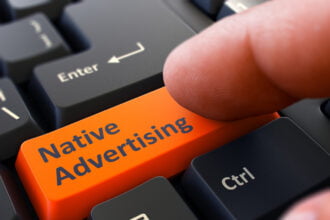Big data technology has helped many companies improve efficiency and address some of the top challenges they have encountered in recent years. A growing number of businesses have invested in AI to improve their business models. As a result, the market for AI technology is projected to be worth over $420 billion by 2028. Surveys have shown that 90% of the top businesses use AI, even though only 37% of companies use it at all.
One of the most important applications of AI is in marketing. AI can help automate many marketing practices and allow companies to get more value out of their efforts.
But does AI come at a cost? Does it force companies to be less creative? The answer is no. AI and creativity can go hand in hand.
AI and Natural Creativity Shouldn’t Be Substitutes for Each Other
The goal of every company is to ensure that its brand is able to stay fresh in the minds of people. As more companies are looking for different ways to reach out to people and improve their brand identity, there is usually a conflict between two important tools – technology and creativity.
How do you know when you should rely on AI technology more than your natural creativity? Are there lines of confluence where both concepts can meet?
Smart companies recognize that AI technology and creativity can actually supplement each other in marketing. This is one of the most important ways they use AI in business.
AI Technology And Creativity: A Perfect Match
We previously had discussions about whether or not AI would replace human designers. As Adobe points out, this discussion has gone on for years, but it hasn’t been the case. It has not replaced the need for creativity. In fact, AI allows design professionals to free up their time on mundane tasks and allowed them to focus more on creative tasks instead.
Marketing technology has become an incredibly important part of how companies reach out to their customers. With AI technology, it is possible to customize ads and target your audience with incredible precision. Just as well, customers today are very busy. For you to engage them, you need to make your ads highly relevant and attractive. You need to find creative ways to make them come to you – an ad strategy that allows you to easily stand out.
A number of AI tools have made marketing creatives higher quality than ever. For example, Canva, Photoshop and other design platforms use AI to help isolate subjects in photos when removing backgrounds or performing other tasks. This helps designers create higher quality silhouettes to use in their marketing designs. AI can also track certain tasks and then automate them to make creatives in batches. PhotoShop and Illustrator have “Automate” tools that make this possible through AI.
Furthermore, AI helps companies test their designs more easily. They can create simulated environments to see how their designs will look on different devices.
It is also worth noting that customers are now using multiple devices. This means that you need to ensure that creativity moves seamlessly across all platforms and devices. Coupled with the need to effectively optimize speed and efficiency, it’s easy to see why technology and creativity are very critical towards the success of your efforts.
Should There Be Conflict Between AI Technology and Creativity in Marketing Tasks?
Intelligent, creative, engaging. While these might sound personal, the terms also describe the future of advertising and brand exposure. Like never before, advertising is now becoming more personal and interesting. This provides a need for increased creativity in how these ads are being crafted.
AI technology also comes in handy, helping brands to effectively target their audiences. For example, today, companies can easily utilize various technologically advanced tools like Adlook, leveraging the platforms’ superior technology to create optimized campaigns and target more people more effectively through artificial intelligence.
The combination of AI and creativity means that companies have more opportunities to reach audiences. However, it also means that the stakes are much higher. If your brand is able to “match” the target audience, then you have an opportunity to make a strong first impression. Anything less than this and you could lose that customer.
So, which should you focus more on? Should creativity take greater importance, or should you focus more on technological optimization?
The best brand marketers understand that this conflict shouldn’t even exist. Creativity and technology can easily work hand in hand, allowing you to overcome the challenges that each individual concept might face while working.
Optimal Targeting Meets Well-Crafted Storytelling
By combining technology and creativity, a brand can enjoy the best of both worlds. You can leverage the power of technology to find your target market, while creativity ensures that you can craft compelling and attractive ads that will grab the attention of your target audience in a flash.
The current direction of branding campaigns focuses more on prioritizing focused engagement over general brand exposure. Just as well, brands are now rethinking how they relate with their audiences. Once you’ve managed to get your brand in front of people, you need to ensure that you’re delivering the right, most relevant message.
To do so, you can start by leveraging platforms and technology available to you. We already pointed out the example of Adlook and its ContextAI©️ to reach their target audience. At the same time, technological tools help brands to measure and track results, so they know what works and what doesn’t.
Now that you have the right technology the next step will be to create great content. This is where creativity comes in. Today’s advertisers need to use creative formats and features in innovative ways to reach more people and bring their brands to life. Your customers want more than just static images and ads that go on for minutes without really drawing them in. If you’re not delivering this, your ability to reach and boost your brand awareness will be significantly affected.
To help with this, creatives can use the digital landscape and incorporate it into their storytelling. Thanks to new formats of display ads, brands can now build high-quality, beautiful content with videos and other channels. They can expand, adding more flexibility to their ads without changing much.
Let Your Consumers Work For You
Another interesting point for marketers to know is that consumers themselves can easily help with building the right ad content. To make your content engaging, let you consumers play a part in their own experiences.
Instead of just delivering the experience to them, build interactive features and ways for users to choose their own experiences. At the end of the day, the important thing to note is that no one knows how to meet the needs of your customers like the customers themselves. So, as much as you can, provide them with variety and let them choose how they’d like to engage with you.
Finally, remember to also build your campaigns with a focus on the long term. Creating engaging experiences makes your customers feel like they belong to a community – one that they can be proud of and would want to continue associating with. They feel more invested in the brand – and not just for the duration of the ad experience. Just like that, your customers become free marketers.
Conclusion: Let’s Merge AI and Creativity
In the push for brand awareness, AI technology and creativity both have roles to play. While it is easy to believe that both should be mutually exclusive, this just isn’t true. Marketers need to leverage all available technology to create optimal targeting and understand their audience, while creativity ensures that they can tell the right stories and engage these audience members.
So, there’s no conflict between both. At the end of the day, brand awareness is the important thing, and there are enough roels to go around.











